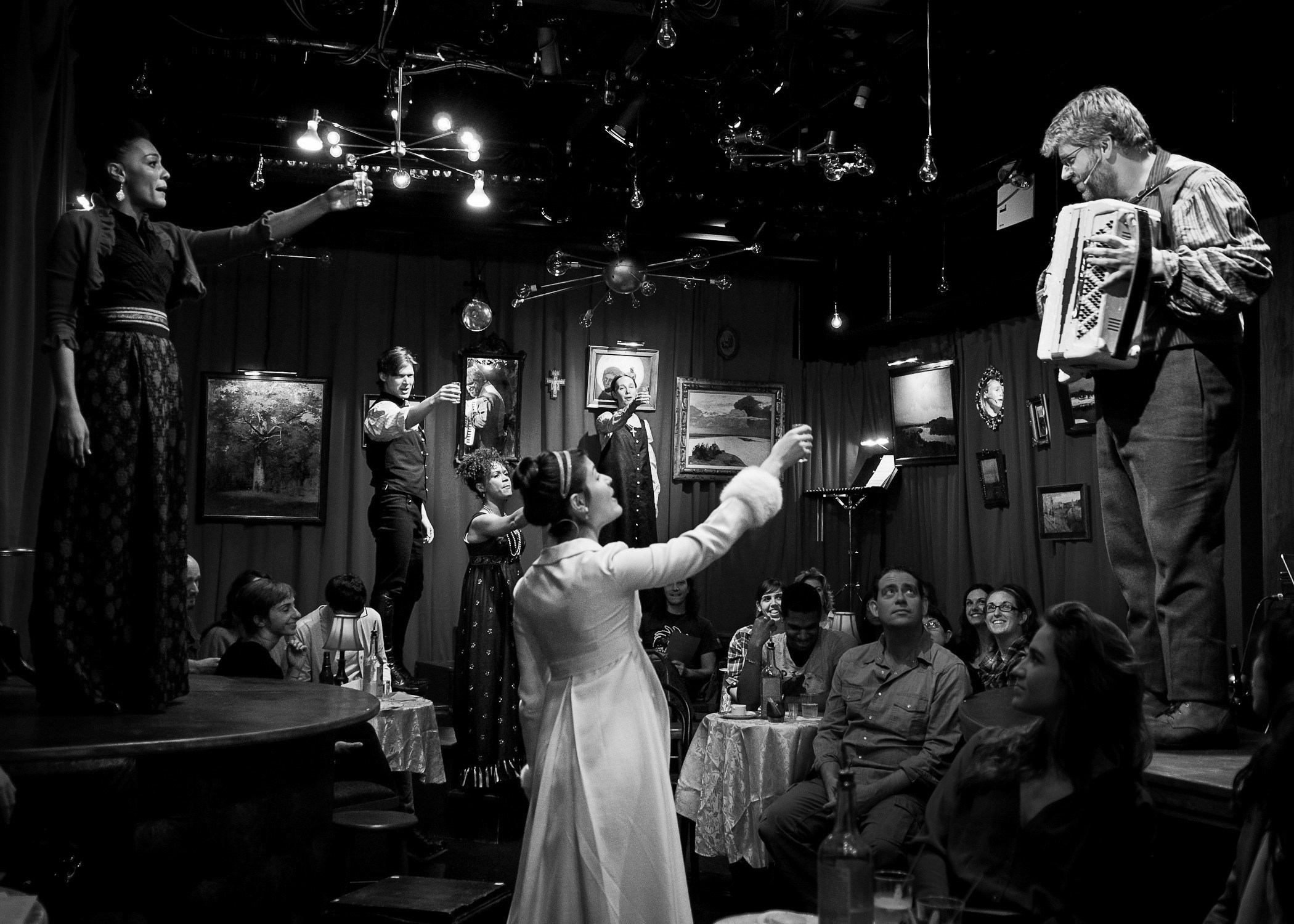Standing in the Silence with The Band's Visit

Even now, three months after The Band's Visit swept the Tonys, gathering ten awards including the crown jewel "Best Musical," there is still discord among the theatre community as to whether or not that sweep was deserved.
I will always, always argue yes. For one, The Band's Visit was the only new musical of the season to receive universal acclaim, with raves across the board. Its path to Broadway was covered in just as much praise, with countless awards and nominations.
That's the critical consensus, at least. And the consensus of the American Theatre Wing, among others.
But the heart of The Band's Visit, and why it has gathered so much acclaim, lies on a much deeper level. It is a deeply personal, carefully crafted piece of theatre that defies much of what typically defines a "Broadway musical."
At its core, the show is about human connection. That connection is fostered through both sound and silence. Silence, then, is perhaps the more groundbreaking of the two when it comes to Broadway shows.
Broadway is known for spectacle. Bright lights, glitter, saturated colors, fancy dances, big costumes, complicated sets, and loud, loud music. This is, of course, a massive overgeneralization. But few shows subvert this as much - and as effectively - as The Band’s Visit.
Silence features prominently in the staging of the musical. For much of the show, there are moments of awkward stills, where the Alexandria Ceremonial Police Band and inhabitants of Bet Hatikvah cannot think of anything to say to one another. It is palpable, uncomfortable quiet. And it draws in the audience in a way no big production number can. The tension is so intense that there can only be desperation for the next word, to break the silence. Silence, then, is used to show a difficulty in making connection.
But silence also gives moments of pure, unspeakable human connection. In The Band’s Visit, when spoken words run out, song is not always the next move. Instead, silence and action takes its place. Most notable is the park scene, where Dina asks Tewfiq about what it feels like to conduct. Unable to begin to express these feelings, particularly not in English, he begins the movements instead. The orchestra swells and blossoms as Dina starts to join in, and then...
Silence. They conduct an invisible, inaudible orchestra together. What the audience imagines is more beautiful than anything than any possible music that could’ve been placed in that moment.
In a musical theatre piece on Broadway in this day and age, to be so quiet for so long is risky and daring. The instinct is always to break silence because it can become so uncomfortable so quickly. Entertainment is so focused on moving fast and keeping something (or many things) happening always that a moment of quietness or stillness feels off.
But The Band’s Visit - book writer Itamar Moses, composer and lyricist David Yazbek, director David Cromer, and the entire cast and creative team - have taken the risk of silence. I feel that it has paid off immensely, in a production that draws you in and makes you listen and watch for whatever might happen and change. There’s far more story than what is sung or said.
Many of the silences are marked in the libretto as beats - typical theatre terminology. But as the show progresses, there are more and more instances of “A moment” nestled between lines. This is most common in scenes between Tewfiq and Dina, who forge a deep connection in the little time they spend together. “A moment” seems perfect to me - this is no silence for silence’s sake. This isn’t a beat to wait for a shift. It is a time, in and of itself, where things are actively changing and happening. Only nothing is said or heard.
The silence is delightfully subversive but also strongly tied to the narrative of the piece as a whole. I can only hope now that other creative teams take note. A musical doesn’t have to be enormous in scale and stakes and sound to be successful. It just has to be true to itself.
Looking at The Band’s Visit and its massive acclaim from an outside perspective might be boggling because of how small and insignificant the narrative seems. Especially when compared to its competitors for the Tonys, it sticks out because it seems like so much less happens on the stage of the Ethel Barrymore. But, through experiencing the show, and staying quiet enough to listen, it becomes clear how beautiful this unexpected gem is, both in song and silence.
(Photo credit Evan Zimmerman for MurphyMade.)




